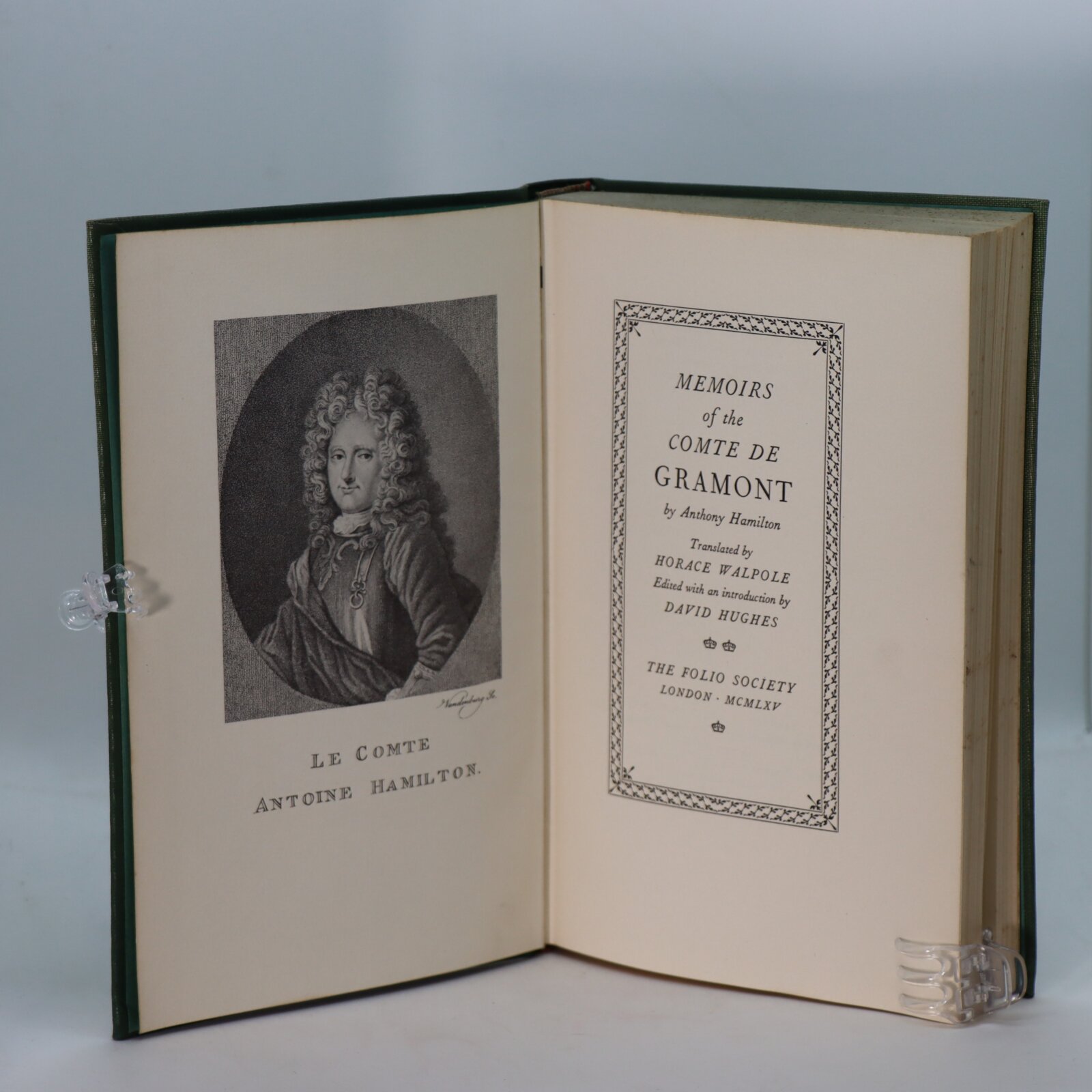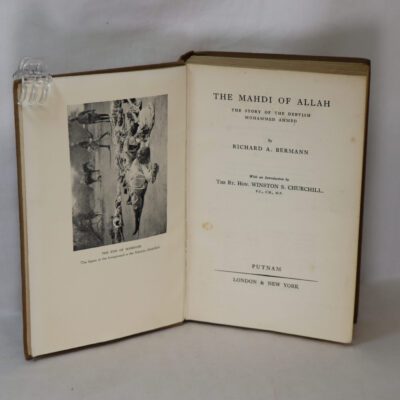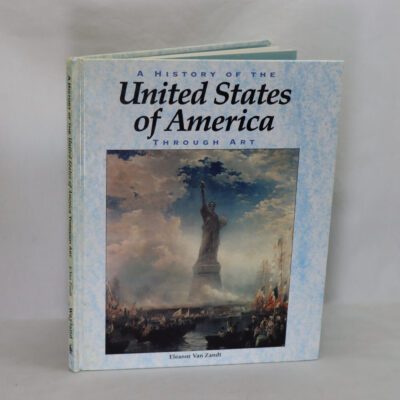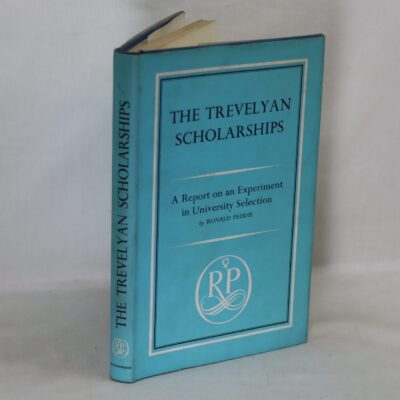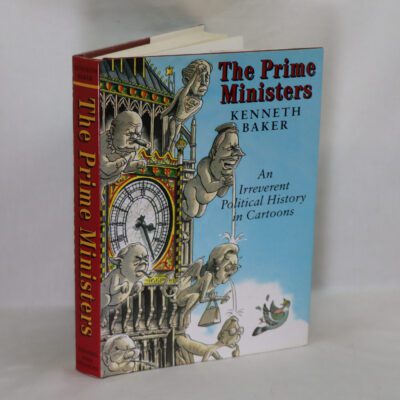Memoirs of the Comte de Gramont.
Printed: 1965
Publisher: Folio Society. London
| Dimensions | 16 × 23 × 3 cm |
|---|---|
| Language |
Language: English
Size (cminches): 16 x 23 x 3
Condition: Good (See explanation of ratings)
Your items
Item information
Description
Green cloth binding with gilt design and title on the spine. Front board has gilt design based on a design by Samuel Mearne.
It is the intent of F.B.A. to provide an in-depth photographic presentation of this book offered so to almost stimulate your feel and touch on the book. If requested, more traditional book descriptions are immediately available.
Philibert, Count de Gramont (1621 – 31 January 1707), was a French nobleman, known as the protagonist of the Mémoires written by Anthony Hamilton (his brother-in-law). He was a younger half-brother of Antoine III of Gramont and uncle of Catherine Charlotte de Gramont, princess of Monaco.
He was 80 years old when he supplied his brother-in-law, Anthony Hamilton, with the material for his Mémoires. Hamilton said that they had been dictated to him, but no doubt he was the real author. The account of Gramont’s early career was doubtless provided by himself, but Hamilton was probably more familiar with the history of the court of Charles II, which forms the most interesting part of the book. Moreover, Gramont, though he had a reputation for wit, was no writer, and there is no reason to suppose that he was capable of producing a work which remains a masterpiece of style and of witty portraiture.
His biographer Hamilton was far superior as a writer to the comte de Gramont, but he relates the story of his hero without comment, and no condemnation of the prevalent code of morals is allowed to appear, unless by an occasional touch of irony. The portrait is drawn with such skill that the count, despite his biographer’s candour, imposes by his grand air on the reader much as he appears to have done on his contemporaries. The book is the most entertaining of contemporary memoirs, and in no other book is there a description so vivid, truthful, and graceful of the licentious court of Charles II. There are other and less flattering accounts of the count. His scandalous tongue knew no restraint, and he was a privileged person who was allowed to state even the most unpleasing truths to Louis XIV.
When the Mémoires were finished, it is said that Gramont sold the manuscript for 1500 francs; and kept most of the money for himself. Fontenelle, then censor of the press, refused to license the book from considerations of respect to the strange old man, whose gambling, cheating and meanness were so ruthlessly exposed. But Gramont himself appealed to the chancellor and the prohibition was lifted.
Condition notes
Want to know more about this item?
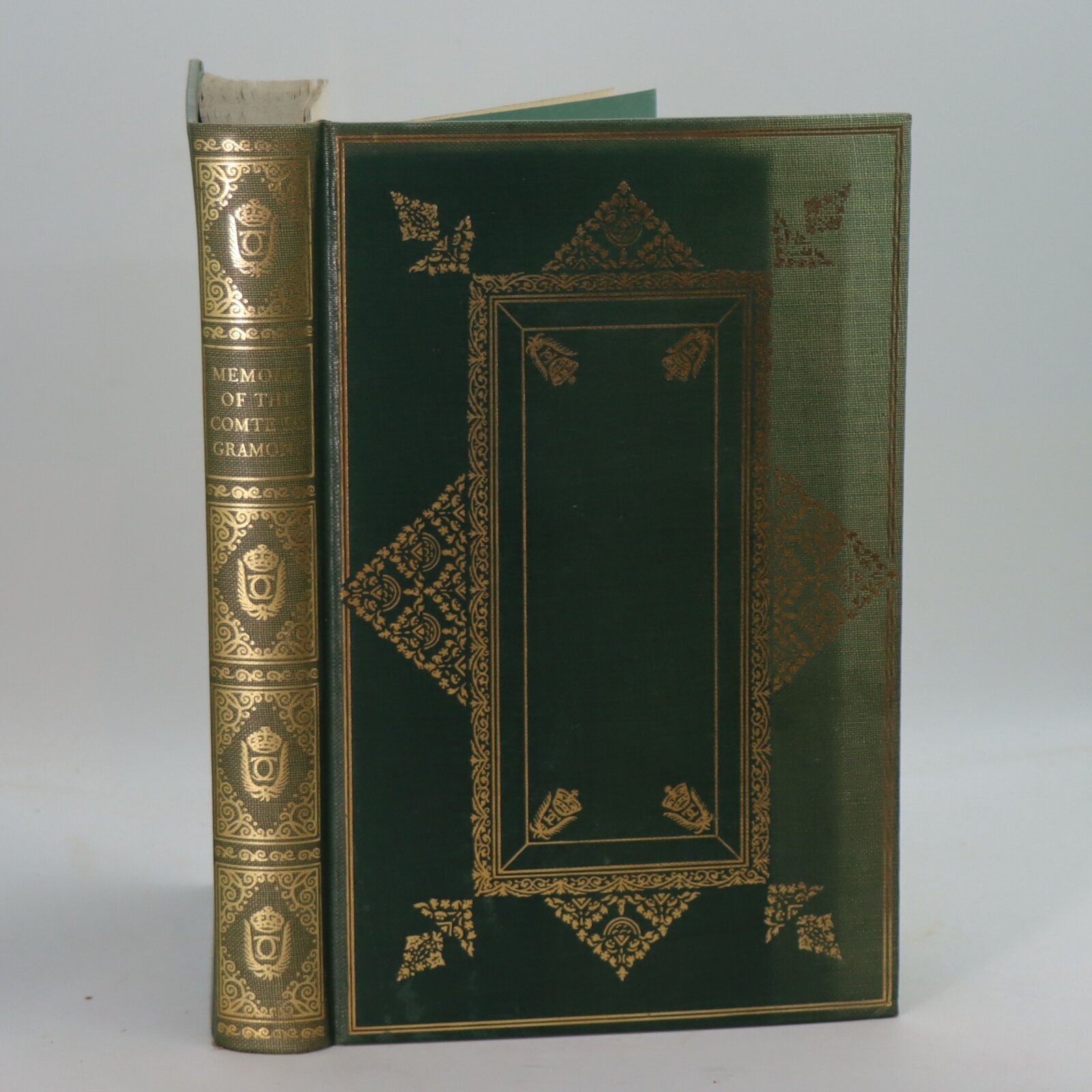
Related products
Share this Page with a friend

